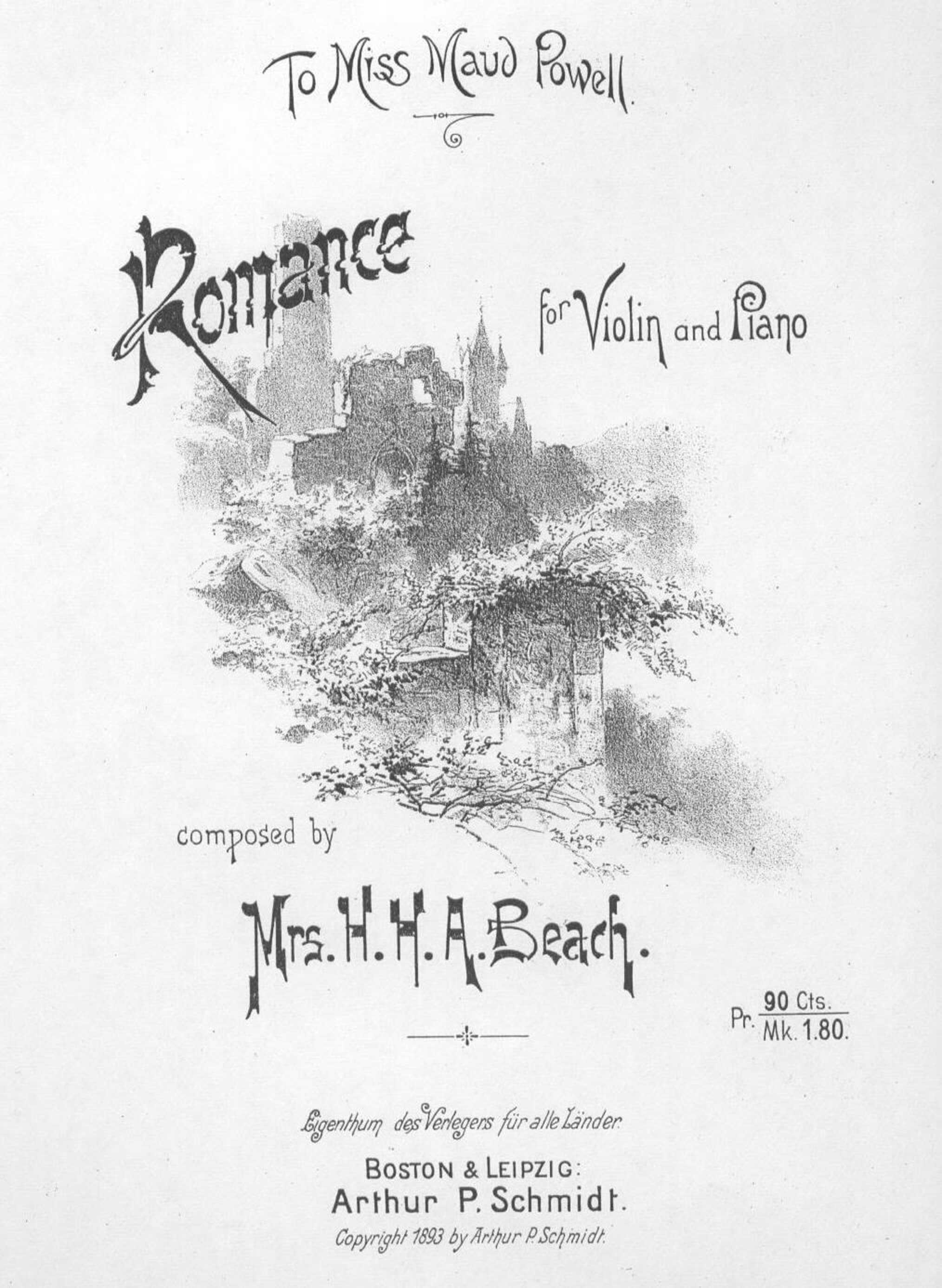Celebrate 2017 Sesquicentennials of
Amy Cheney Beach

b. Henniker, NH
5 September 1867 -- 27 December 1944
Amy Beach was a leading representative of the late nineteenth-century Romantic style cultivated by Chadwick, Foote, and others of the Boston school; yet she had no formal training as a composer and never studied abroad. In 1885 she was well launched as a concert pianist; however, her marriage in that same year, at eighteen, to Dr. H. H. A. Beach, a prominent Boston surgeon, turned her to composing instead. A self-taught genius, she mastered every form of composition from the symphony to the simple song.
Beach’s earliest large-scale work, Mass in E-flat major (1886-89), was performed in Boston in 1892 by the Handel and Haydn Society, gaining her public recognition and the commission for Festival jubilate. Theodore Thomas led the Exposition orchestra’s premiere of Festival jubilate at the 1893 World’s Columbian Exposition in Chicago.
Beach’s “Gaelic” Symphony, Op. 32, was the first symphony composed by an American woman and was premiered by the Boston Symphony Orchestra on October 30, 1896, under Emil Paur. She sent her violin sonata, Op. 34, to Maud Powell in manuscript, who wrote back, “[I]t is a fine, scholarly work . . . splendidly effective.” In 1897, Franz Kneisel (concertmaster of the Boston Symphony) and Beach premiered the sonata. It was played in Paris in 1900 by Eugène Ysaÿe and Raoul Pugno. Beach first performed her Piano Concerto in C-sharp Minor, Op. 45 (dedicated to Teresa Carreño), with the Boston SO in 1900.
 Beach’s works were characterized by technical mastery, spontaneity, and originality—all traits crystallized in the Romance, Op. 23, written for and dedicated to Maud Powell. Beach and Powell premiered the Romance at the Woman’s Musical Congress, held July 5-7, 1893, during the World’s Columbian Exposition in Chicago. It is now available in Maud Powell Favorites, from the Maud Powell Society. Read about the friendship between Maud Powell and Amy Beach. -- PDF extract from Maud Powell Favorites by Karen A. Shaffer, 2009.
Beach’s works were characterized by technical mastery, spontaneity, and originality—all traits crystallized in the Romance, Op. 23, written for and dedicated to Maud Powell. Beach and Powell premiered the Romance at the Woman’s Musical Congress, held July 5-7, 1893, during the World’s Columbian Exposition in Chicago. It is now available in Maud Powell Favorites, from the Maud Powell Society. Read about the friendship between Maud Powell and Amy Beach. -- PDF extract from Maud Powell Favorites by Karen A. Shaffer, 2009.